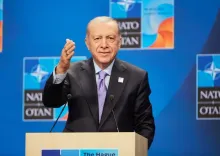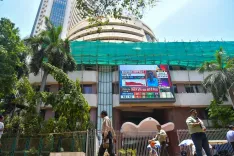How is Malaysian PM Strengthening Resilience in Semiconductor Sector?
Synopsis
Key Takeaways
- Collaboration with reliable partners is key.
- Strengthening resilience against external disruptions is essential.
- ASEAN cooperation boosts sector development.
- Focus on creating homegrown champions.
- Increasing training for engineers is a priority.
Kuala Lumpur, July 25 (NationPress) - Malaysia aims to collaborate with reliable partners and enhance the resilience of its semiconductor sector to protect against external disruptions and trade tensions, stated Prime Minister Anwar Ibrahim.
In his keynote address at the ASEAN Semiconductor Summit 2025, reported by Xinhua, he emphasized that strengthening regional cooperation through ASEAN and other frameworks will aid the sector in withstanding external shocks and promote development via research and development, and by generating demand as companies in the region elevate their skills and capabilities.
“Achieving true supply chain resilience involves removing weak links, either by effectively producing what we require or establishing dependable partnerships to access resources beyond our domestic capabilities. In these unpredictable times, diversifying our options is not merely wise; it is imperative,” he remarked.
“Our well-established semiconductor ecosystem is positioned to transition from an FDI-first strategy to nurturing local champions. This doesn’t imply shunning investors, but rather adopting a more strategic and judicious approach. We seek long-term partners who evolve with us, and we will continue to welcome allies who fortify our supply chains and share their expertise and technologies,” he added.
Anwar mentioned that Malaysia is working diligently to increase its pool of trained engineers to combat shortages and is participating in a broader ASEAN initiative—leveraging the collective strengths of the group rather than acting independently—to address common challenges more effectively.
“Malaysia must capitalize on its local strengths to fulfill a larger regional and global role. By fortifying our domestic ecosystem, we are also bolstering ASEAN's industrial capacity,” he stated.
The ASEAN Semiconductor Summit (ASEMIS) serves as a high-level assembly of government officials, policymakers, and industry leaders from the ASEAN region and global semiconductor organizations.








